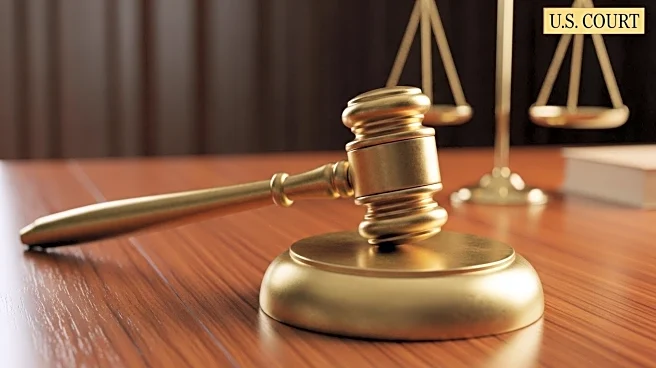What is the story about?
What's Happening?
A U.S. federal judge has dismissed a lawsuit filed by the Central American Bank for Economic Integration (CABEI) against its former president, Dante Mossi. The bank accused Mossi of attempting to undermine its credit rating after it became apparent he would not be reappointed for a second term. The lawsuit, which was filed last year, alleged that Mossi violated the Racketeer Influenced and Corrupt Organizations (RICO) Act. However, U.S. District Judge Christopher Cooper ruled that the bank did not sufficiently demonstrate that Mossi had violated the RICO Act. The bank has indicated plans to refile the case in a state court, maintaining that Mossi breached fiduciary duties and engaged in manipulation and tortious interference.
Why It's Important?
The dismissal of this case highlights ongoing tensions within the Central American Bank for Economic Integration, an institution critical to economic development in the region. The bank, which receives significant funding from countries like the United States, South Korea, and Taiwan, has faced scrutiny for its financial dealings with authoritarian regimes in Central America. The legal battle with Mossi, who has criticized the bank's transparency, underscores internal conflicts that could impact its credibility and operations. The outcome of this legal dispute may influence the bank's future governance and its relationships with international stakeholders.
What's Next?
The Central American Bank for Economic Integration plans to pursue its claims against Dante Mossi in a state court, suggesting that the legal battle is far from over. Meanwhile, Mossi is pursuing a separate legal case against the bank in the Central American Court of Justice, alleging damage to his reputation. The ongoing legal proceedings could lead to further revelations about the bank's internal operations and its financial practices, potentially affecting its standing with international donors and partners.
Beyond the Headlines
This case sheds light on the broader issue of governance and accountability within international financial institutions operating in politically sensitive regions. The allegations against Mossi and the bank's dealings with authoritarian governments raise questions about the ethical responsibilities of such institutions. The outcome of these legal proceedings could prompt a reevaluation of how international development banks operate and are held accountable, particularly in regions with complex political landscapes.















